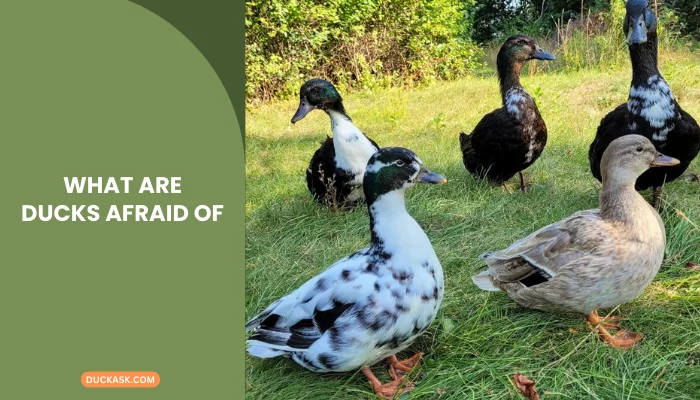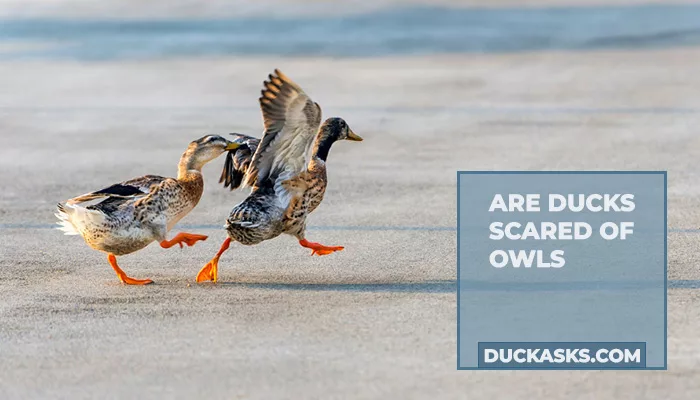Do Ducks Lay Eggs All Year Round?
Ducks are quite the egg-laying champs, producing a generous supply of 300-350 eggs yearly. Whereas chickens typically produce only 250 eggs.
Worrying about protein and nutrients can go out the window if you have ducks on your farm. But here’s the question – do ducks lay eggs all year round, or do they take breaks?
Ducks continue to lay eggs in every season, all year long, even when it’s chilly in winter.
In the article, we explain how frequently ducks lay eggs. We will also discuss their ideal time to release the eggs.
Let’s get started!
Looking for more articles about ducks habit:
How Often Do Ducks Lay Eggs?
Curious about the daily egg count of these web-footed friends? Waterfowls have a unique schedule when it comes to their precious eggs. Ducks and geese, like clockwork, lay one egg every 24 to 48 hours. The regal swans, on the other side, will prefer to offer you an egg every two days.
However, note that egg-laying frequency differs between duck species. Speaking of numbers, let’s talk clutch size – a female’s total number of eggs laid.
Ducks, with their resourceful and nurturing instincts, can produce clutches anywhere from 3 to 12 eggs. This diverse size unfolds over a period of 1 to 2 days between each egg. It ensures their offspring have a fair chance at survival.
When Do Ducks Start to Lay Eggs?
First, let’s understand when ducks reach maturity. Based on the species, they take 16-28 weeks to become fertile. It means you can expect ducks to lay eggs from the age of 4 to 7 months.
However, the 4 months we mentioned only apply to small breeds like Bantams. They may surprise you with their early arrivals.
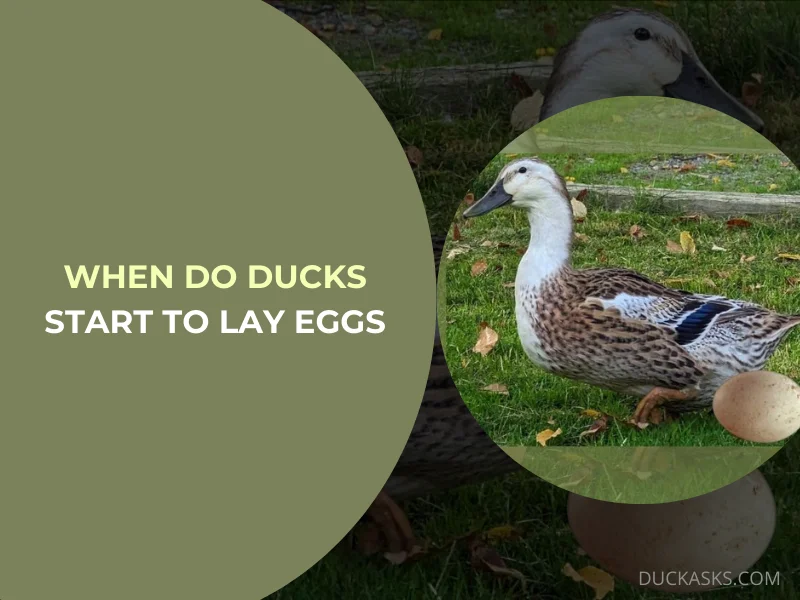
On the other hand, the heavier duck breeds, like the graceful Muscovies, take a little more time to join the party, typically starting after 6 months.
In the midst of nature, wild ducks embark on their egg-laying extravaganza during spring. This season marks the beginning of their mating period.
Here’s something interesting. Although domesticated and wild ducks have the exact opposite characteristics, domestic flocks, including Mallards, also produce eggs in the spring. Quite fascinating, right?
One thing to note is that domesticated ducks are not subject to the minimum age for reproducing. It is a seasonal affair for them, with spring being their chosen time, regardless of how old they are.
How Long Do Ducks Lay Eggs?
As a professional duck breeder, I have delved into the fascinating world of egg-laying capabilities among different duck breeds.
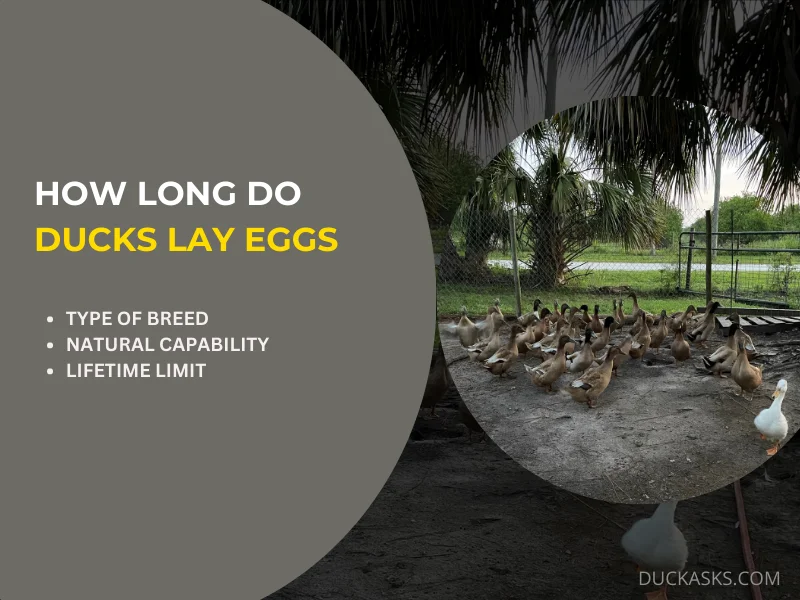
Let’s explore the duration of egg-laying, how temperature affects their productivity, their inherent natural capability to lay eggs, and the lifetime limits of their egg-laying capacity.
Type of Breed
As a seasoned duck breeder with personal expertise, I’ve observed that different duck breeds vary significantly in their egg-laying capabilities.
When considering which breed of ducks lay the most eggs, it’s essential to weigh all factors. Among my flock, the Campbell Ducks truly stand out, boasting an impressive yield of up to 340 eggs per year.
Additionally, the Ancona Ducks, with approximately 240 eggs per year, and the versatile Runners, laying around 300 eggs per year, also deserve special mention.
However, each breed has its unique charm and qualities, making the decision a delightful and rewarding challenge for any duck enthusiast. So, here is a list of duck breeds that can lay the highest number of eggs –
| Duck Breed | Eggs per Year | Egg Characteristics |
|---|---|---|
| Campbell Duck | Up to 340 | Regular-sized eggs |
| Ancona Duck | Approximately 240 | Regular-sized eggs |
| Runner Duck | Around 300 | Similar in size to chicken eggs |
| Buffs Duck | About 200 | Regular-sized eggs |
| Welsh Harlequin Duck | Around 300 | Regular-sized eggs |
| Magpie Duck | Close to 300 | Eggs ranging in color |
| Saxony Duck | 200 to 250 | Regular-sized eggs |
| Muscovy Duck | Up to 200 | Extra-large/jumbo-sized eggs |
| Pekin Duck | Approximately 200 | Larger eggs |
| Cayuga Duck | 100 to 150 | Gray-colored eggs |
Temperature Effects: As an experienced duck breeder, I’ve noticed that temperature plays a pivotal role in duck egg production. A study on ducks and temperature revealed fascinating insights.
Higher housing temperatures can exert a significant negative impact on egg production, causing a reduction of approximately 14.9% in Hen day production (HDP) as temperatures rise.
This finding underscores the importance of maintaining optimal living conditions with the correct temperature and humidity for our feathered friends, specially during the incubation period.
Failing to maintain the ideal temperature can lead to your duck not laying eggs, specially during winter.
Tips for Maintaining the Egg-Laying Environment for Your Ducks: For both breeders and non-breeders, the most crucial aspect is providing an environment that positively encourages ducks to lay eggs.
For example, if you give them enough light even in the winter (using artificial light), ducks won’t stop laying eggs. Lights give off heat, which they love.
You should also not keep too many of them together. When they are crowded, especially in commercial setups, their movement is limited, putting them under stress. In such an environment, they also lack a safe breeding ground.
Both of these factors cause these birds to have difficulty reproducing.
Natural Capability
Frankly speaking, they are pretty good egg providers, more so than chickens. We would estimate ducks cease to lay eggs after 7 to 9 years.
Nevertheless, not every duck remains fertile for 9 years. Some might ease up on the egg-sending or call it quits in 6 years.
A study on ducks found that older ducks tend to have lower egg production, with a noticeable decrease of about 11.7% in Hen day production (HDP) as they age.
This factor underscores the need for attentive care and management of our duck flocks, ensuring that they remain healthy and productive throughout their egg-laying years.
Lifetime Limit
Ducks are born with a certain number of eggs they can lay throughout their lives. The more eggs they deposit in a year, the fewer years they’ll be able to do it.
It’s like they have a fixed supply, and laying more makes it run out sooner. And keep in mind that the fixed supply will not emerge unless you create a safe and conducive environment.
Weather Factors of Ducks Laying Eggs
The beauty of duck egg-laying lies in its synchronization with nature. As daylight hours shift with the seasons in your area, so too does the time when ducks choose to lay their eggs.
Unfortunately, winter months are challenging for egg production due to their dark weather. In that case, you can make use of supplemental light as your secret weapon.
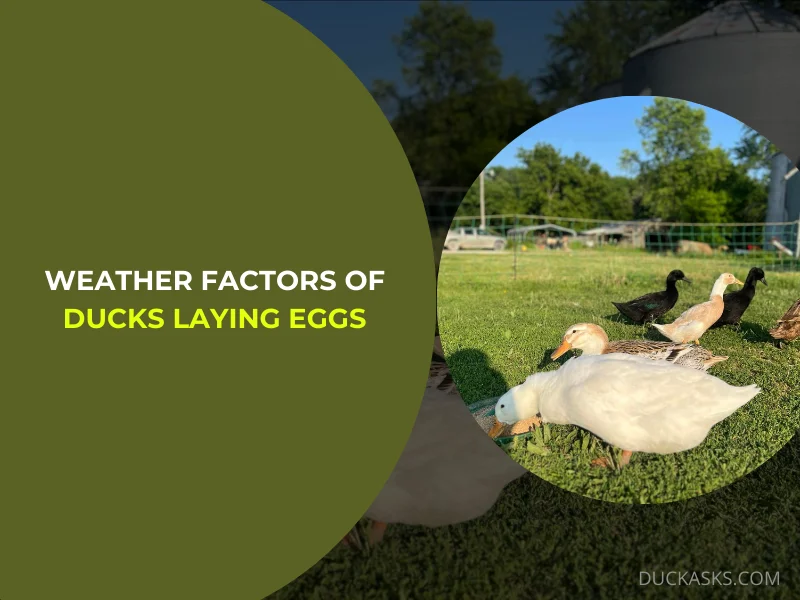
By mimicking a natural sunrise in the coop, it ensures that your ducks stay on schedule even when the sun’s warmth is scarce. This trick adds a touch of summer to the coldest days and guarantees a steady flow of eggs.
Similar to humans, ducks appreciate a moment of privacy and calm to prepare for their early morning routines. Giving them space is vital then.
If you stand near these birds waiting for eggs to come out, they may become anxious. It could lead to a production halt, leaving you empty hands until the ducks regain their equilibrium.
What Time of Day Do Ducks Lay Eggs?
Unlike chickens, who are known to present eggs all day long, ducks pick a specific time to reveal their wonderful gifts. Chickens might choose any time, with a common range between 11:00 am and 1:00 pm.
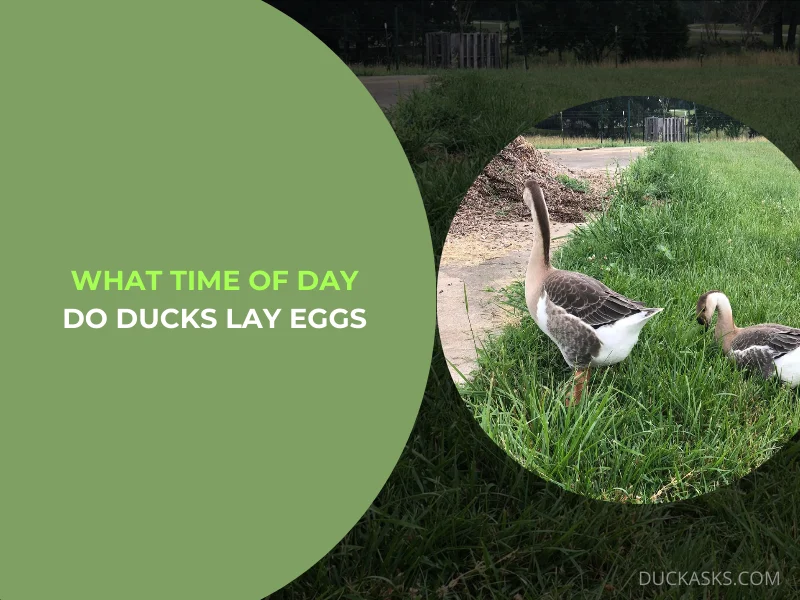
In contrast, ducks have their own early morning encounter related to eggs. Picture the sun just beginning to paint the sky with its golden hues. That’s when you’ll likely find duck eggs nestled in their cozy nests.
The early morning hours, around sunrise, are when they decide to lay their eggs. Some might even set the stage as early as 4:30 am, while others prefer to debut closer to 8:00 am.
Conclusion
As the article shows, ducks do lay eggs all year round, even during the non-optimal winter months. Spring is the time of year when eggs are most plentiful. While ducks typically produce an egg every 24 hours, the swans are a bit irregular with their two-day-one-egg cycle.
References:
- https://www.ncbi.nlm.nih.gov/books/NBK232332/
- https://www.cambridge.org/core/journals/world-s-poultry-science-journal/article/abs/fertility-and-hatchability-in-duck-eggs/1F2842413BDDB0F43B60F760BA9C3941
Image Credits:
- Facebook.com/Diana Fee
- Facebook.com/Emily Rose Barrick
- Facebook.com/Alina B Padron Beso
- Facebook.com/ Heather Cornell

